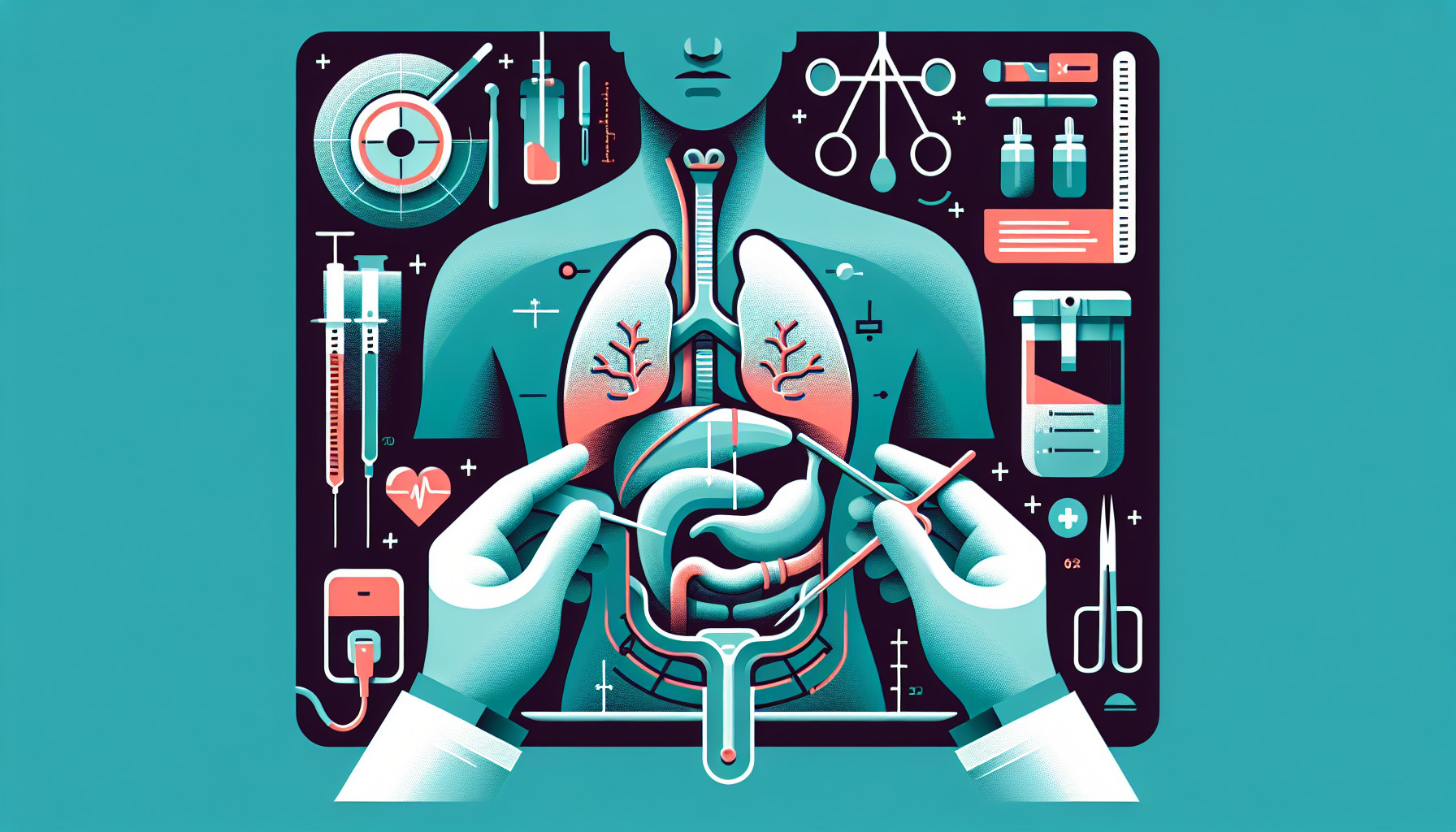Our Summary
This research paper discusses the treatment of diabetes through pancreas transplantation. Diabetes is a major global health problem that requires a lot of resources to manage. A successful pancreas transplant can help control blood sugar for a long time and improve the survival rate for patients with diabetes. The progress in pancreas transplant mainly comes from large individual studies and data from the United Network for Organ Sharing and the International Pancreas Transplant Registry. This paper reviews the results of pancreas transplants in patients with and without severe kidney disease. It talks about the current state of pancreas transplantation, what we still need to know, and what future research is needed to help more patients benefit from this treatment. It emphasizes the need for large-scale, randomized trials to clearly understand the effectiveness, risks, and long-term benefits of pancreas transplantation.
FAQs
- What is the significance of pancreas transplantation for patients with diabetes mellitus?
- What is the current state of pancreas transplantation and what are the gaps in knowledge regarding this treatment?
- Why is there a need for multicenter randomized trials in pancreas transplantation?
Doctor’s Tip
A helpful tip a doctor might tell a patient about pancreas transplant is to carefully follow the post-transplant medication regimen and attend all follow-up appointments to ensure the success of the transplant and maintain optimal health. It is also important to maintain a healthy lifestyle, including regular exercise and a balanced diet, to support the functioning of the transplanted pancreas.
Suitable For
Patients with type 1 diabetes who have difficult-to-control blood sugar levels despite optimal medical management, as well as patients with type 2 diabetes who have had a kidney transplant or who are at risk for kidney failure, are typically recommended for pancreas transplant. Additionally, patients with frequent severe hypoglycemic episodes, hypoglycemia unawareness, or complications from diabetes such as neuropathy, retinopathy, or cardiovascular disease may also be considered for pancreas transplant. These patients may benefit from improved glycemic control and a reduction in the risk of long-term complications associated with diabetes.
Timeline
Before Pancreas Transplant:
- Patient is diagnosed with type 1 diabetes mellitus (DM) and experiences difficulty in managing blood sugar levels with insulin therapy.
- Patient may develop complications such as kidney disease, nerve damage, and vision problems.
- Patient undergoes evaluation for pancreas transplant, including medical and psychosocial assessments.
- Patient is placed on the waiting list for a suitable donor pancreas.
After Pancreas Transplant:
- Patient undergoes surgery to receive a pancreas transplant, either alone or in combination with a kidney transplant (simultaneous pancreas-kidney transplant).
- Patient is closely monitored in the hospital for complications such as rejection, infection, and surgical complications.
- Patient begins taking immunosuppressive medications to prevent rejection of the transplanted pancreas.
- Patient experiences improved blood sugar control and a reduced risk of complications related to diabetes.
- Patient undergoes regular follow-up appointments and monitoring to assess the function of the transplanted pancreas and adjust medications as needed.
What to Ask Your Doctor
- Am I a candidate for a pancreas transplant?
- What are the risks and benefits of a pancreas transplant for my specific situation?
- How long is the waiting list for a pancreas transplant and what is the likelihood of receiving a donor organ?
- What is the success rate of pancreas transplants at this hospital or transplant center?
- What is the recovery process like after a pancreas transplant?
- What are the potential complications or side effects of a pancreas transplant?
- Will I need to take immunosuppressant medications after the transplant, and what are the potential long-term effects of these medications?
- How often will I need follow-up appointments and monitoring after the transplant?
- Are there any lifestyle changes or dietary restrictions I will need to follow after a pancreas transplant?
- What are the alternatives to a pancreas transplant, and how do they compare in terms of outcomes and risks?
Reference
Authors: Dean PG, Kukla A, Stegall MD, Kudva YC. Journal: BMJ. 2017 Apr 3;357:j1321. doi: 10.1136/bmj.j1321. PMID: 28373161
